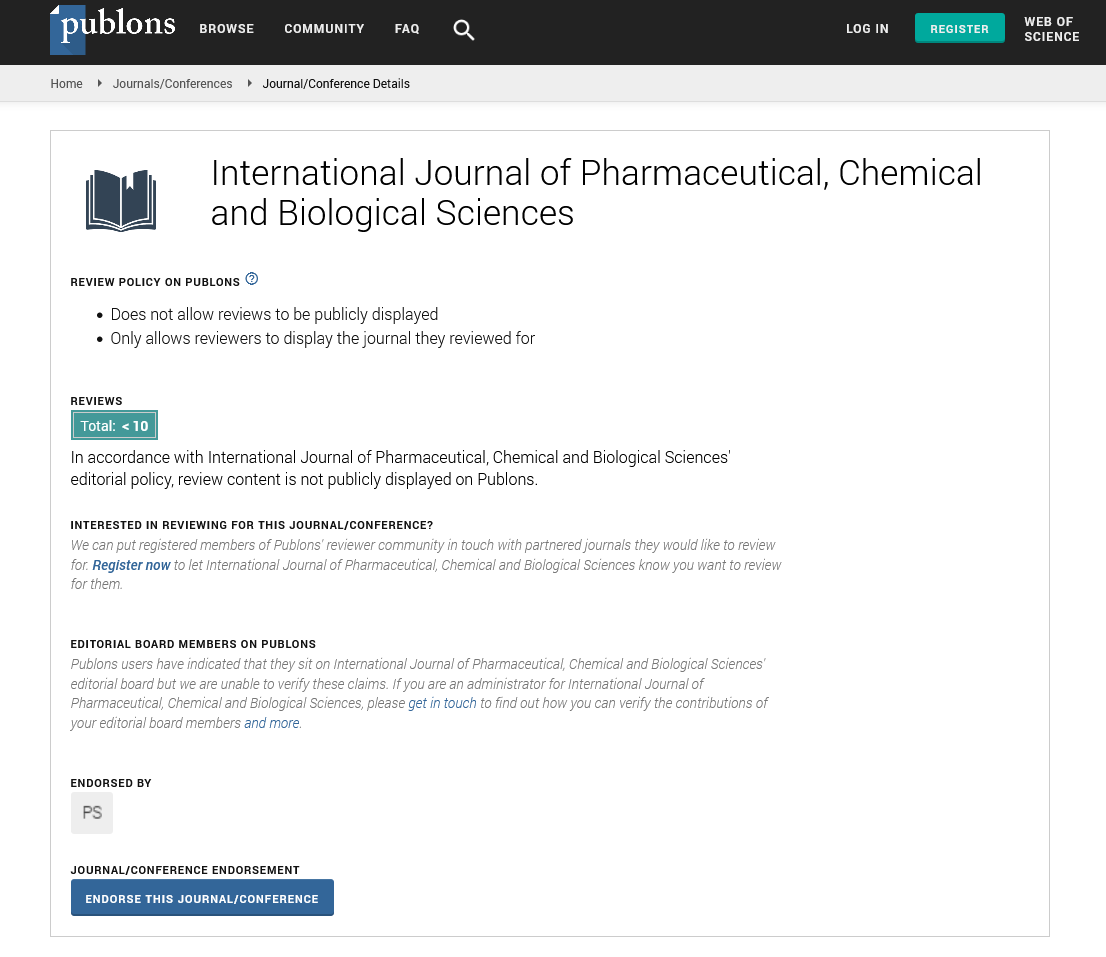Commentary Article - International Journal of Pharmaceutical, Chemical and Biological Sciences ( 2024) Volume 14, Issue 3
Impact of Genetic Polymorphisms on Drug Metabolizing Enzymes
James Phillips*James Phillips, Department of Pharmacogenetics, University of Manchester, United Kingdom,
Received: 02-Sep-2024, Manuscript No. ijpcbs-24-148822; Editor assigned: 04-Sep-2024, Pre QC No. ijpcbs-24-148822 (PQ); Reviewed: 18-Sep-2024, QC No. ijpcbs-24-148822; Revised: 23-Sep-2024, Manuscript No. ijpcbs-24-148822 (R); Published: 30-Sep-2024
Description
Genetic polymorphisms in drug-metabolizing enzymes significantly influence the pharmacokinetics and pharmacodynamics of medications, ultimately affecting therapeutic outcomes and the risk of adverse drug reactions. These polymorphisms are variations in the DNA sequence of genes encoding enzymes responsible for drug metabolism, leading to differences in enzyme activity among individuals. The well-studied drug-metabolizing enzymes belong to the Cytochrome P450 (CYP) family, which plays a crucial role in the oxidative metabolism of many drugs. Genetic variations in CYP genes can result in various phenotypes, including poor, intermediate, extensive, and ultra-rapid metabolizers. For instance, the CYP2D6 enzyme is responsible for the metabolism of approximately 25% of all prescribed drugs, including antidepressants, antipsychotics, and opioids. Individuals with certain polymorphisms in the CYP2D6 gene may exhibit poor metabolizer status, leading to reduced enzyme activity. Consequently, these individuals may experience increased plasma concentrations of medications that are substrates of CYP2D6, heightening the risk of toxicity and adverse effects. Conversely, ultra-rapid metabolizers may metabolize the same drugs too quickly, potentially resulting in sub therapeutic drug levels and reduced efficacy. Another significant enzyme is CYP2C19, which is involved in the metabolism of proton pump inhibitors, antidepressants, and antiplatelet agents like clopidogrel. Genetic polymorphisms in CYP2C19 can categorize individuals as poor, intermediate, or extensive metabolizers. Poor metabolizers may require alternative dosing strategies or alternative medications to achieve therapeutic efficacy while minimizing the risk of adverse effects. Similarly, variations in the CYP3A4 and CYP3A5 genes can impact the metabolism of various drugs, including statins, calcium channel blockers, and immunosuppressants. The interplay between genetic polymorphisms and environmental factors, such as diet, lifestyle, and concurrent medications, further complicates drug metabolism. For example, certain foods, like grapefruit juice, can inhibit CYP3A4 activity, leading to increased drug concentrations and potential toxicity in individuals with varying metabolic capacities. Moreover, genetic polymorphisms are not limited to the CYP family; other drug-metabolizing enzymes, such as those involved in Phase II metabolism, can also exhibit significant genetic variability. For instance, variations in Uridine 5’-Diphospho-Glucuronosyltransferase (UGT) genes affect the glucuronidation of drugs like irinotecan and acetaminophen. Patients with reduced-function UGT variants may experience higher concentrations of these drugs and are at increased risk for adverse effects. The impact of genetic polymorphisms on drug metabolism emphasizes the importance of pharmacogenomic testing in clinical practice. By identifying an individual’s genetic makeup concerning drug-metabolizing enzymes, healthcare providers can tailor medication choices and dosages to optimize therapeutic outcomes while minimizing the risk of toxicity. This approach, known as personalized or precision medicine, aims to enhance the safety and effectiveness of drug therapies by considering individual genetic profiles. As research in pharmacogenomics advances, the integration of genetic testing into clinical practice is becoming more feasible. Guidelines are being developed to assist clinicians in making informed decisions about drug therapy based on genetic variations in drugmetabolizing enzymes.
Acknowledgment
None.
Conflict Of Interest
None.

